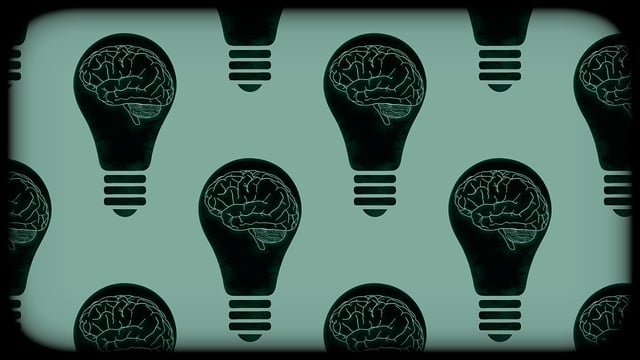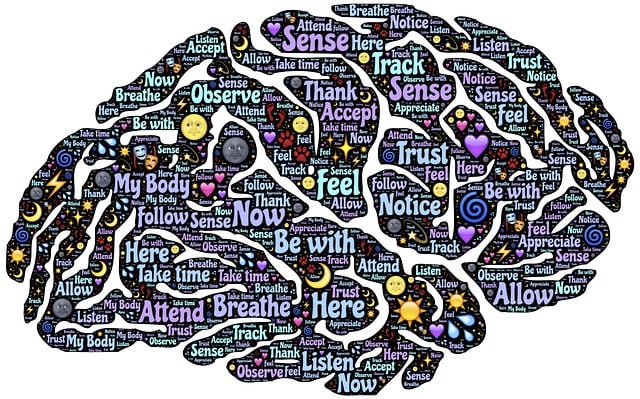Greenwood Village Geriatrics Therapy offers a holistic, evidence-based approach to crisis intervention for older adults, focusing on immediate assistance and long-term mental health. Their strategies include mindfulness, positive thinking, community outreach, and cultural competency training. By addressing loneliness, cognitive decline, and chronic illnesses, they provide tailored support for emotional well-being, enhancing resilience and fostering a sense of belonging through collaborative care coordination and post-crisis support initiatives.
In the complex landscape of geriatric care, crisis intervention strategies are vital for ensuring the well-being and safety of elderly individuals. This comprehensive guide explores effective approaches, starting with an in-depth look at crisis intervention in geriatics and the unique challenges it presents. The article delves into the proven Greenwood Village Geriatrics Therapy Approach, providing practical insights on identifying, assessing, and managing emergency situations. From implementation techniques to post-crisis support, discover strategies that not only mitigate crises but also foster recovery and resilience.
- Understanding Crisis Intervention in Geriatric Care
- The Greenwood Village Geriatrics Therapy Approach
- Identifying and Assessing Emergency Situations
- Implementing Effective Crisis Management Techniques
- Post-Crisis Support and Recovery Strategies
Understanding Crisis Intervention in Geriatric Care

In the realm of geriatric care, crisis intervention strategies are paramount for addressing acute emotional or psychological distress in older adults. Understanding that aging can bring unique challenges and vulnerabilities, such as loneliness, cognitive decline, and chronic illnesses, Greenwood Village Geriatrics Therapy employs a holistic approach to support this vulnerable population. Crisis interventions focus on providing immediate, targeted assistance to mitigate the intensity of the crisis and prevent its escalation. This involves not just addressing the immediate symptoms but also identifying and reinforcing coping mechanisms, enhancing resilience, and fostering a sense of safety and support.
The integration of practices like Mindfulness Meditation and Positive Thinking into therapy sessions empowers older adults with valuable tools for stress management and emotional regulation. Moreover, Greenwood Village Geriatrics Therapy recognizes the importance of Community Outreach Program Implementation to connect seniors with social networks, resources, and opportunities that promote well-being and foster a sense of belonging. This comprehensive approach ensures that crisis intervention in geriatric care is not just reactive but proactive, aiming to improve long-term mental health outcomes for elderly individuals facing crises.
The Greenwood Village Geriatrics Therapy Approach

The Greenwood Village Geriatrics Therapy Approach is a holistic and evidence-based model designed to address the complex needs of older adults facing various crises, including mental health challenges. This approach emphasizes the importance of individualized care, incorporating physical, emotional, and social aspects to ensure comprehensive support. Geriatric therapists in this context are trained not only in mental health practices but also in understanding the unique cultural dynamics and life experiences of elderly individuals.
Integrating a Healthcare Provider Cultural Competency Training component, this therapy approach recognizes that effective crisis intervention requires sensitivity to diverse cultural backgrounds and beliefs. By fostering an inclusive environment, therapists can reduce barriers often associated with seeking help, such as stigma (Mental Illness Stigma Reduction Efforts). Furthermore, the strategy promotes collaboration among various care providers, ensuring a coordinated Mental Health Policy Analysis and Advocacy approach tailored to each client’s specific needs.
Identifying and Assessing Emergency Situations

In the dynamic field of geriatric care, such as that provided by Greenwood Village Geriatrics Therapy, identifying and assessing emergency situations is paramount. Crisis intervention often involves recognizing subtle cues or sudden changes in an older adult’s behavior, mood, or physical well-being. Mental health professionals must possess a keen awareness of these indicators to swiftly navigate potential crises. This includes understanding not just the medical aspects but also the emotional intelligence required to connect with and assess individuals in distress.
Effective crisis assessment involves a holistic approach, considering both the present circumstances and the individual’s history. The Risk Assessment for Mental Health Professionals is a valuable tool that aids in this process. By applying Emotional Intelligence, professionals can gauge emotional regulation, identify risk factors, and formulate appropriate interventions. This proactive approach ensures that any emergency situation is addressed promptly, enhancing the overall well-being of geriatric patients.
Implementing Effective Crisis Management Techniques

Implementing effective crisis management techniques is crucial for addressing immediate needs and fostering long-term recovery, especially in senior populations like those served by Greenwood Village Geriatrics Therapy. Professionals must be adept at navigating crises that can range from acute medical emergencies to existential dread or sudden life changes. A holistic approach that integrates Depression Prevention strategies, Trauma Support Services, and Emotional Intelligence is essential for effective crisis intervention.
By combining these methods, geriatric therapists can help individuals develop coping mechanisms, enhance resilience, and build a support network that promotes emotional well-being. For instance, integrating Emotional Intelligence enables therapists to understand and respond to the unique emotional needs of each individual, while Trauma Support Services are vital for those with underlying trauma who may be triggered during crises. Such a comprehensive approach ensures that seniors receive not just immediate relief but also sustainable tools for managing future challenges.
Post-Crisis Support and Recovery Strategies

After a crisis, providing adequate post-crisis support is crucial for long-term recovery and well-being. Greenwood Village Geriatrics Therapy emphasizes that this phase involves several strategies tailored to address the unique needs of individuals or communities affected. One key approach is encouraging open dialogue and fostering a safe space for expression, allowing them to process their experiences and emotions freely. This can be facilitated through individual therapy sessions, support groups, or community-based discussions, ensuring people feel heard and understood.
Additionally, implementing sustainable coping mechanisms and resilience-building techniques plays a vital role in recovery. Greenwood Village Geriatrics Therapy suggests integrating activities that promote self-care, such as stress management programs, mindfulness practices, or engaging in hobbies, into daily routines. The Community Outreach Program Implementation can also enhance post-crisis support by connecting individuals with local resources, community services, and peer support networks, fostering a sense of belonging and empowerment. Furthermore, raising Mental Health Awareness through educational initiatives and open conversations helps normalize the conversation around crisis recovery, encouraging proactive burnout prevention strategies.
In conclusion, effective crisis intervention in geriatric care requires a multifaceted approach. The Greenwood Village Geriatrics Therapy provides a valuable framework for understanding and addressing emergency situations among the elderly. By identifying and assessing crises promptly, implementing evidence-based techniques like those outlined here, and offering robust post-crisis support, caregivers can significantly enhance the well-being of their patients. Adopting these strategies ensures not only immediate stability but also long-term recovery and improved quality of life for geriatric individuals facing crisis situations.














